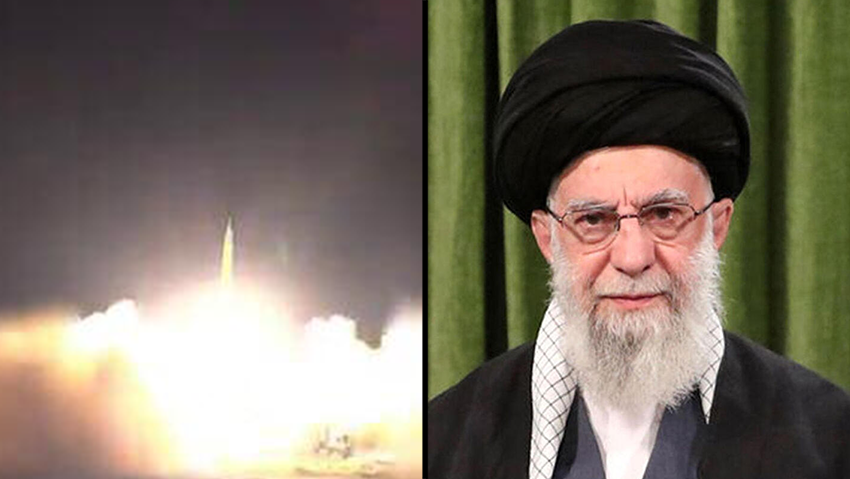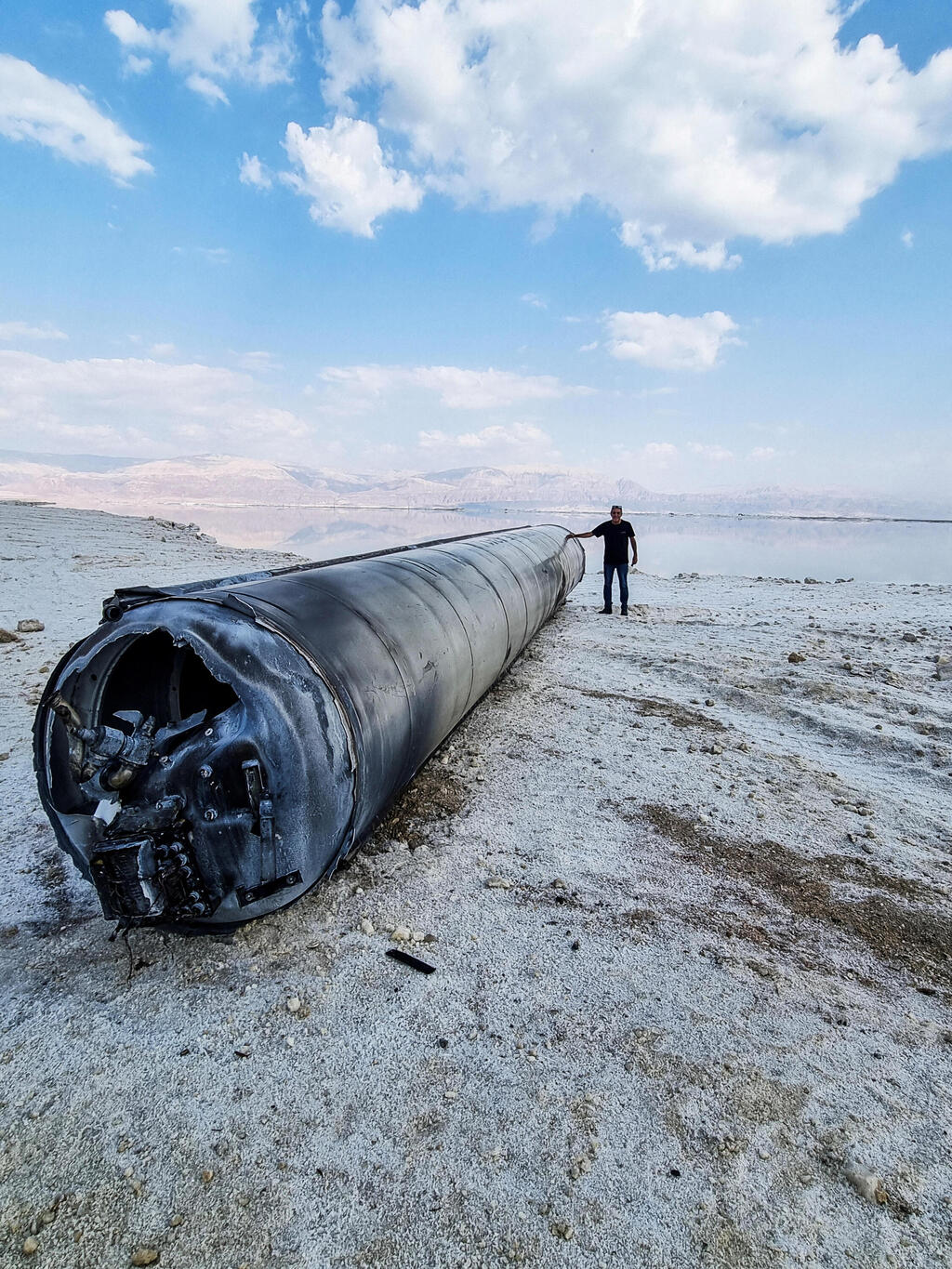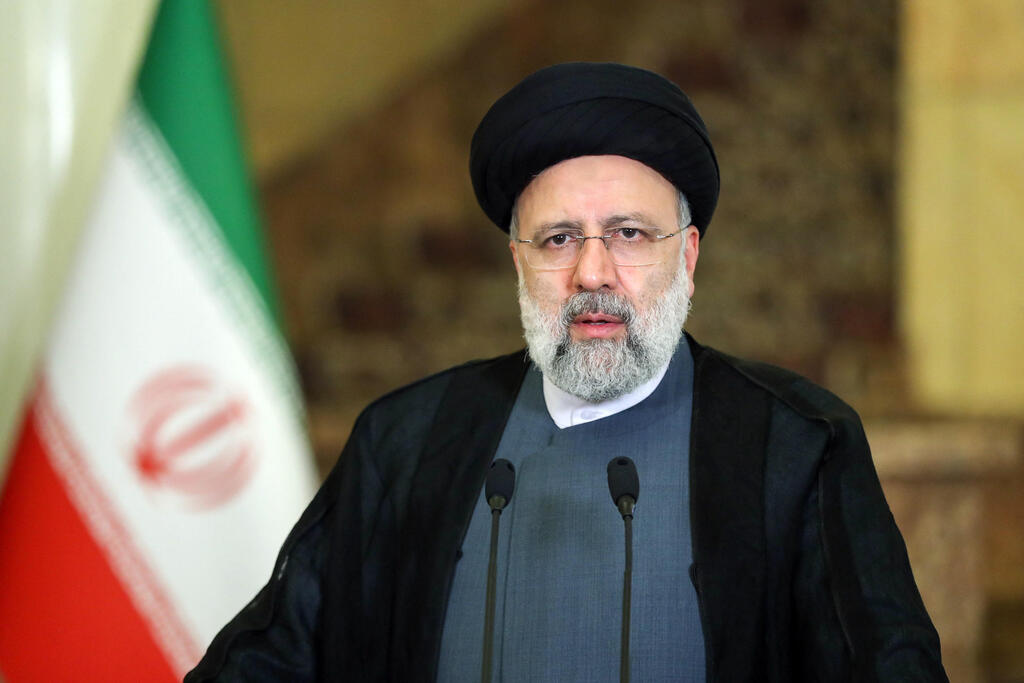owing Iran's unsuccessful attack on Israel over the weekend, a series of articles in Hebrew began appearing on regime-aligned websites focusing on the Iranian offensive.
ParsToday, a site linked to the Revolutionary Guards, featured on Tuesday an article in Hebrew titled "Characteristics of the Iranian Missile Attack Against Israel." The piece highlighted that while the so-called Operation Righteous Promise wasn't executed as a full-scale war nor did it employ the full spectrum of Iran's military and technological strengths, it showcased Iran’s precision in missile technology.
Using broken Hebrew, the article explained that the attack was a retaliatory move against Israel's purported targeting of the Iranian consulate building in Syria, among other reasons.
The article further enumerates eight distinct aspects of the operation. Initially, it mentions that the operation's code name, Ya Rasool Allah (O Messenger of God), and its official name, Operation Righteous Promise, were meant to signal that Iran's actions were carried out on behalf of all Islamic nations globally.
In a subsequent section titled "Characteristics of the Operation," it is noted that despite Israel's established red lines, the Iranian assault was launched from within its borders and exceeded expectations. The report further stated that the operation placed both Israel and the U.S. into a defensive posture, focusing on containment and minimal response as their primary actions during the incident.
In later paragraphs, it is stated that Iran "alarmed the strategic military evaluation about itself." Some experts suggest that the Islamic Republic has the capability to consolidate all fronts against its adversaries and orchestrate a coordinated attack. The website claims that this was indeed achieved during the assault.
While Hezbollah endorsed the operation and continued its assaults on Israel during the Iranian offensive, and Iran’s affiliates in other so-called "axis of resistance" nations applauded and supported the attack on Israel, there was no significant escalation by any other axis member apart from Iran, nor were there any formal announcements about other elements officially joining the operation.
The Iranian mouthpiece also mentioned that Iran, without deploying its full military arsenal, was still able to demonstrate its missile capabilities. The website reported that these missiles were fired massively at military targets and "hit their mark." Furthermore, it highlighted the supposed exposure of Israeli technology’s ineffectiveness against Iranian missiles and drones. Here again, the portrayal diverges significantly from reality.
ParsToday asserted in its report that numerous specifics about the operation are still under wraps, including the missile launch locations and the predetermined targets. The publication notes that the exact number of missiles fired, the types of drones and missiles used and the damage inflicted remain undisclosed. However, it is emphasized that Iran orchestrated and executed what is considered one of the largest drone and missile operations in history.
The article presents misleading information as factual as part of a psychological operation led by Tehran. The report states that Iran deployed cruise missiles, ballistic missiles and drones, with Israel effectively neutralizing most of these threats. The article claims that the operation debunked the perceived capabilities of Israel's cyber and military defenses, suggesting that Iran has redefined the region's historical context into a pre and post-operation era.
Nir Sevati, a researcher with the INSS's Iran program, points out that ParsToday is not the sole Hebrew-language platform operated by the Iranian regime. Other platforms like Nur News also disseminate content in Hebrew targeting the Israeli audience.
"Despite errors, they continue to publish, mirroring their approach to missile launches where the act of launching is deemed more significant than the outcome," Sevati said. He emphasizes that the projection of power and the crafting of events are more crucial for the Iranian regime than the actual results.
Sevati further notes that the "truthfulness of the content is secondary in these publications. During unsuccessful missile launches, the visibility of the missiles over Israel was more important to Iran than their accuracy. Establishing a Hebrew-language site to spread propaganda and foster a sense of deterrence and disdain toward Israel is prioritized over the accuracy of the content."
Meanwhile, Prime Minister Netanyahu expressed gratitude toward British Foreign Secretary David Cameron and German Foreign Minister Annalena Baerbock for their strong support and their nations' robust defense against the Iranian assault on Israel. However, he stressed that while he values their suggestions and advice, Israel will make its own decisions and take all necessary measures to ensure its security.






